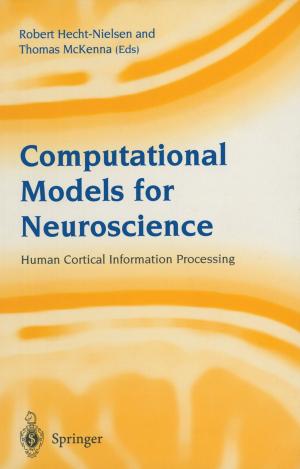Emergent Web Intelligence: Advanced Semantic Technologies
Nonfiction, Computers, Advanced Computing, Programming, User Interfaces, Information Technology, General Computing| Author: | ISBN: | 9781849960779 | |
| Publisher: | Springer London | Publication: | June 17, 2010 |
| Imprint: | Springer | Language: | English |
| Author: | |
| ISBN: | 9781849960779 |
| Publisher: | Springer London |
| Publication: | June 17, 2010 |
| Imprint: | Springer |
| Language: | English |
The success of the World Wide Web depends on the ability of users to store, p- cess and retrieve digital information regardless of distance boundaries, languages and domains of knowledge. The universality and ?exibility of the World Wide Web have also enabled the rapid growth of a variety of new services and applications based on human–machine interaction. The semantics of exchanged information and services should be useful not only for human to human communications, but also in that machines would be able to understand and automatically process web content. Semanticsgive well-de?nedmeaningto web content and enable computersand p- ple to work in cooperation. Today, the crucial challenge becomes the development of languages to express information in a machine processable format. Now more than ever, new advanced techniques and intelligent approaches are required to tra- form the Web into a universal reasoning and computing machine. Web intelligence attempts to deal with this challenge by exploiting information technologies and - ti?cial intelligence approaches to design the next generation of web-empowered systems and services.
The success of the World Wide Web depends on the ability of users to store, p- cess and retrieve digital information regardless of distance boundaries, languages and domains of knowledge. The universality and ?exibility of the World Wide Web have also enabled the rapid growth of a variety of new services and applications based on human–machine interaction. The semantics of exchanged information and services should be useful not only for human to human communications, but also in that machines would be able to understand and automatically process web content. Semanticsgive well-de?nedmeaningto web content and enable computersand p- ple to work in cooperation. Today, the crucial challenge becomes the development of languages to express information in a machine processable format. Now more than ever, new advanced techniques and intelligent approaches are required to tra- form the Web into a universal reasoning and computing machine. Web intelligence attempts to deal with this challenge by exploiting information technologies and - ti?cial intelligence approaches to design the next generation of web-empowered systems and services.















